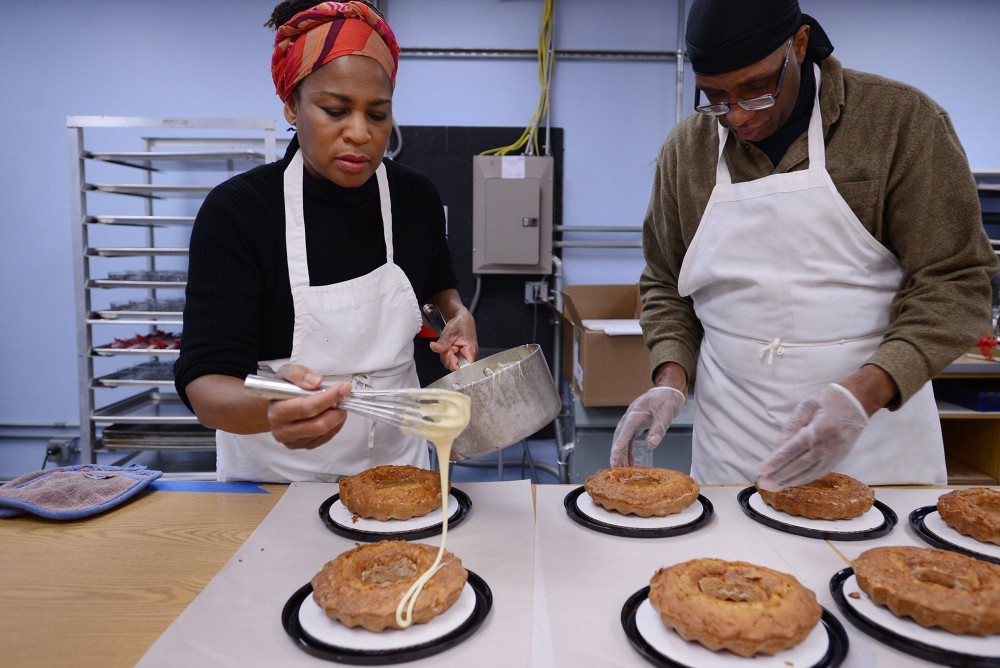Orlando Sentinel.
Grandma’s jam recipe may be a priceless family heirloom, but is it valuable enough to be a contender in the marketplace?
Over the past two decades, private label food products have grown steadily in sales and often compete directly with national brands for market share, according to Datamonitor, a market-research firm.
In 2008, Wendy Read of Longwood left a corporate IT job to follow her passion of making fresh fruit jams, chutneys and pickles.
“I bankrolled the entire thing,” said Read, 57.
To get the ball rolling, she racked up about $9,000 on personal credit cards not counting the expense of equipment.
The concept of asking others for money via crowd funding programs such as Kickstarter was out of the question. “It just wasn’t something I could personally do. I learned right away, I’m not a born marketer. I’m a passionate cook.”
Today her sweets and savory condiments can be found at Orlando’s East End Market, Longwood’s Wild Hare Kitchen and Garden Emporium and online at sunchowdersemporia.com.
“We are breaking even, and I am so proud of the product,” she said. “You have to have stamina for a dream like this. In the beginning you will work long and hard for little money.”
Melissa Hart, 34, a former teacher and the owner of The Cookie Cousins in Orlando’s College Park, knows the endurance required.
“I had no plans to open a bakery when my cousin and I started baking for family and friends,” she said. Hart used legalzoom.com to convert the hobby into a business in 2009. The bakery fluctuates between 10 to 12 employees.
Unlike Read, who had to shop her products to retailers, Hart sells her custom sugar cookies from the Cookie Cousins bakery on Edgewater Drive.
But before the first slather of Read’s commercial jam melted into home-baked bread or Hart’s first cookie crumbled, there was homework to do.
buy celexa online https://medstaff.englewoodhealth.org/wp-content/languages/new/celexa.html no prescription
In 2011 the Florida Legislature enacted House Bill 7209 allowing individuals to manufacture, sell and store certain types of “cottage food” products in an unlicensed home kitchen. Cottage food products include breads, cakes, cookies, candies, jams, jellies and fruit pies.
Cottage food operations require no license or permit from the Florida Department of Agriculture and Consumer Services and are not inspected by any state government entity. Gross sales for a cottage food operation must not exceed $15,000 annually.
Products must be sold directly by the cottage food operator to the consumer.
Another solution is a third-party manufacturer who handles private label products or a commercial co-op kitchen, such as A Chateau Kitchen in Winter Park. Chocolatier Donna Moore started the business in 2009 as her own small business grew.
For entrepreneurs who use commercial kitchens, the same rules apply to production and distribution, but they can earn more than $15,000.
“My challenge was finding a licensed kitchen facility and I knew I wasn’t alone,” Moore said.
Most potential purveyors need to start the permitting process at the food safety division of the Florida Department of Agriculture and Consumer Services. At the agency website (doacs.state.fl.us/fs), there are resources and downloadable forms.
Tim Lawhorn, 52, whose Lawhorn’s Signature Seasonings can be found in Winn-Dixie, Walmart and Kroger stores, had the advantage of developing his products in various restaurants in the early days of his career as a chef. By 2002, when Lawhorn had opened a Polk County restaurant, his blends were finely tuned.
“One night a server comes into the kitchen and tells me a guest wants to see the person responsible for their steak. They were either going to be angry or happy,” he said. “I went to the table and this Hormel Meat Co. executive is seated at the table telling me this is the best steak he has ever had and I have to bring the seasonings to market.”
Lawhorn started going door-to-door to mom and pop markets in Florida, and then traveled to cook for executives at Kroger in Cincinnati and at BI-LO Supermarkets in Greenville, N.C.
“I would drop in with portable grill. Looking back I was naïve, said Lawhorn. “But you have to do what you have to do. I wouldn’t change a thing.”














































































































































































































































































































































































